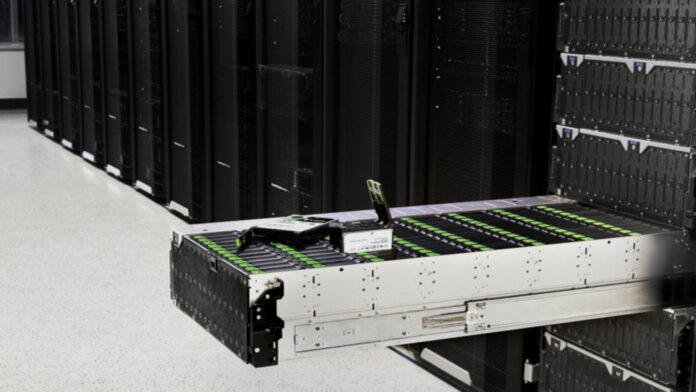- Seagate Exos 4U100 delivers multi-petabyte capacity for demanding AI and ML workflows
- The HAMR technology guarantees the tightness and long life of the Exos 4U100
- Edge environments benefit from the Exos 4U100’s ability to capture continuous data
Seagate introduces its new Exos 4U100 and 4U74 JBOD systems, designed to meet the growing data demands of artificial intelligence and machine learning.
The flagship Exos 4U100 chassis offers a maximum capacity of 3.2 petabytes, combining density and performance suitable for data center and edge environments.
At the heart of this edition is Seagate’s Mozaic HAMR technology, designed to support high data throughput while reducing power consumption.
Innovation for the periphery
Seagate claims its HAMR technology can keep up with the scalability and speed required in AI-powered workflows.
The company presents the Exos 4U100 as a solution for environments where data is generated and processed outside of central cloud systems.
Targeted at AI workloads that rely on fast updates and local analysis, the system supports model checkpoints, long-term data storage, and continuous recording.
Seagate says the Exos 4U100 achieves 70 percent more cooling efficiency and uses 30 percent less power than the previous generation, with flexibility for SAS and SATA configurations.
However, as with any tight enclosure, efficiency requirements largely depend on actual workloads and how well systems maintain stability during long-term data operations.
SSDs dominate fast caching and flash drives are still useful for mobility. But hard drive-based systems like the Exos 4U100 still offer unmatched capacity for long-term storage at a lower cost.
These hybrid methods are increasingly important for AI workflows where data is continuously generated, trained and stored.
The challenge is not raw capacity, but maintaining efficiency and security at different storage levels.
Seagate includes Secure Boot, Redfish management and the exclusive Seagate Secure certification to protect against unauthorized access.
This protection is important as data sovereignty regulations and privacy expectations continue to evolve.
But even if security is a priority, the question remains whether such large containers can remain manageable in rapidly evolving AI environments.
The Exos 4U100 demonstrates Seagate’s confidence in the continued relevance of mechanical storage, even as SSD and Flash technologies continue to evolve.
“Seagate Exos 4U100 JBOD heralds a bold new chapter in edge storage innovation, designed to meet the evolving needs of data creation, storage, replication and analytics at the edge,” said Melyssa Banda, senior vice president of storage and edge services at Seagate.

